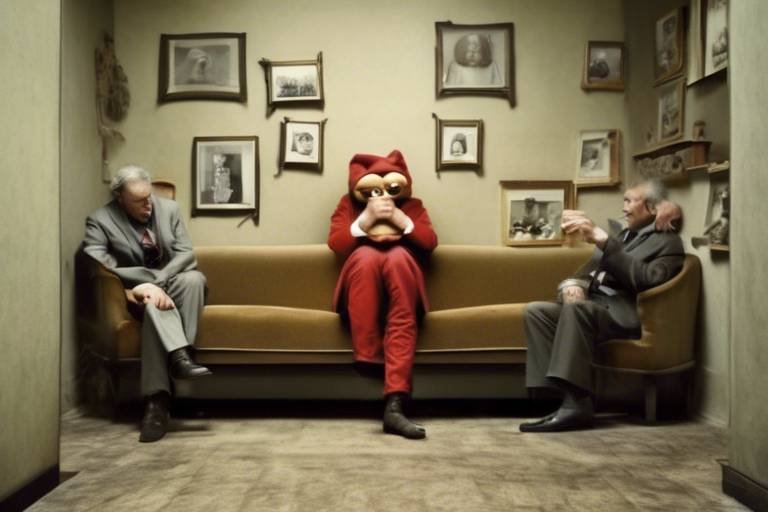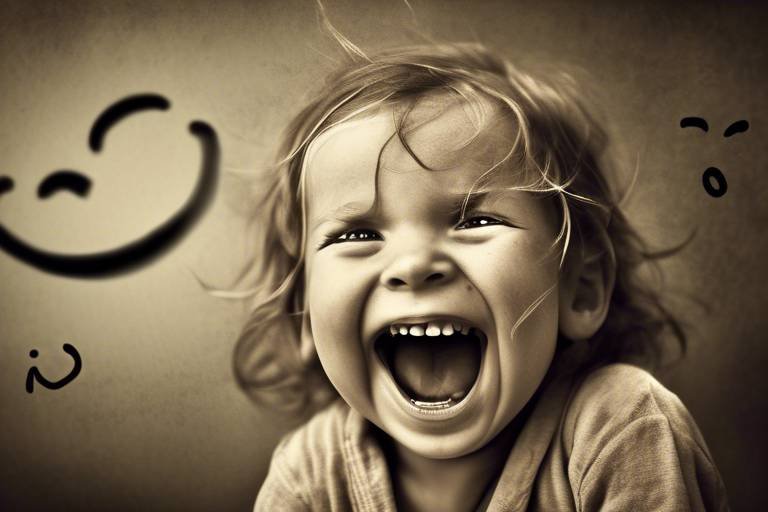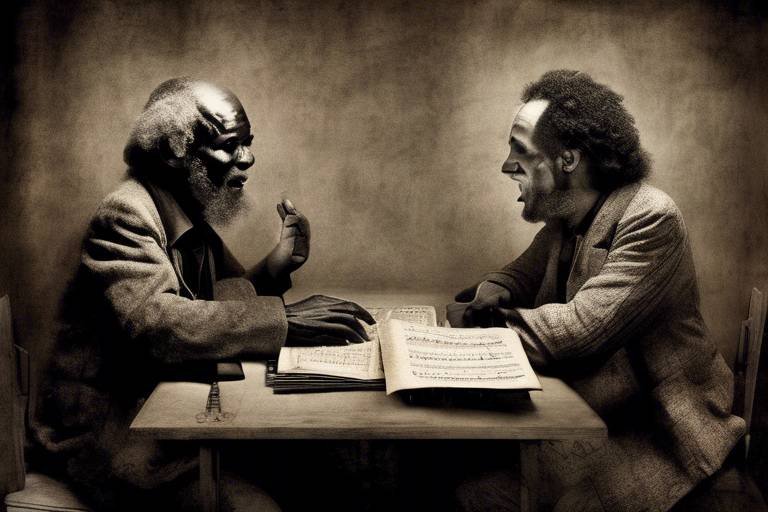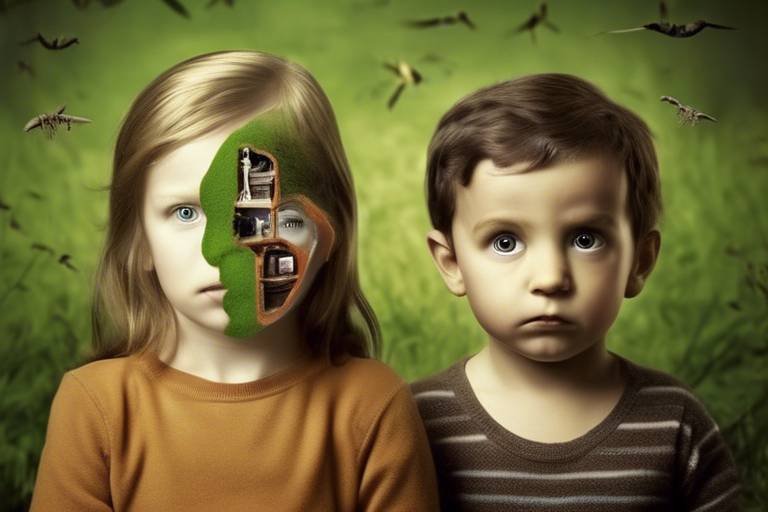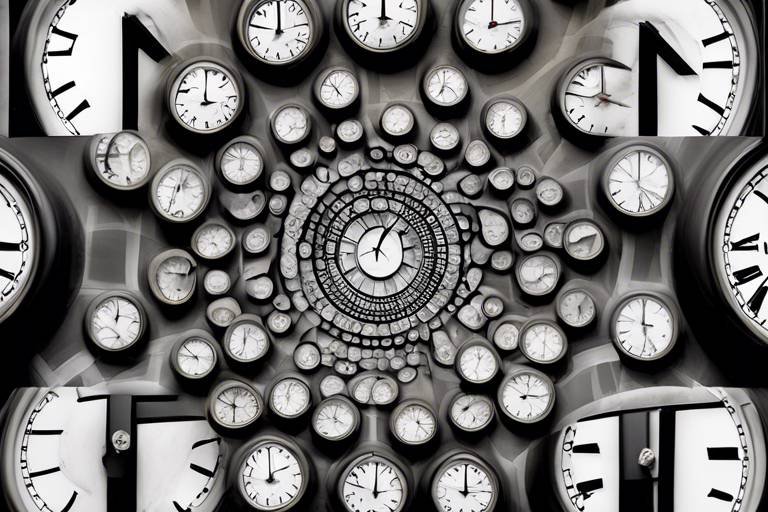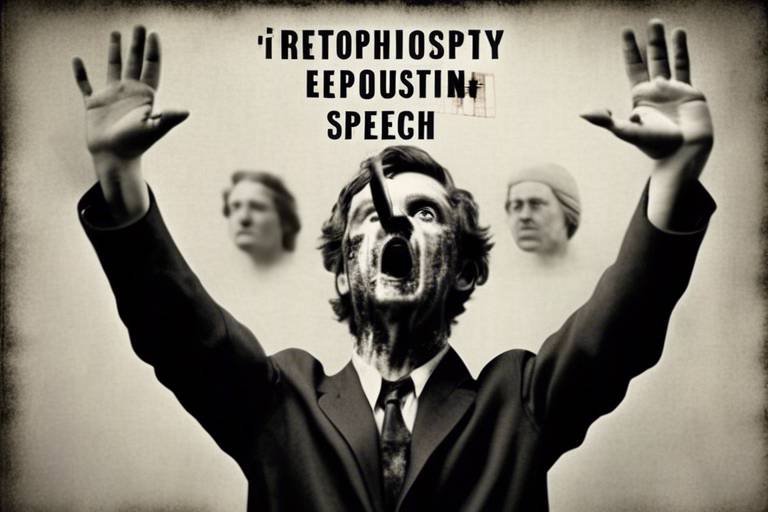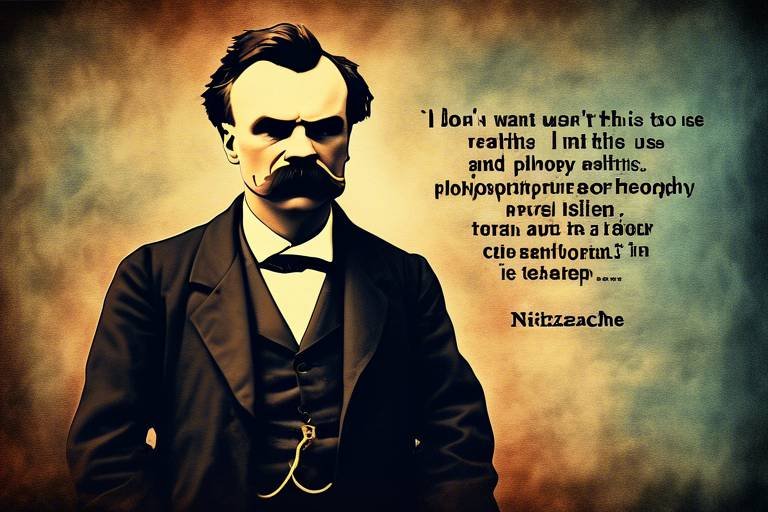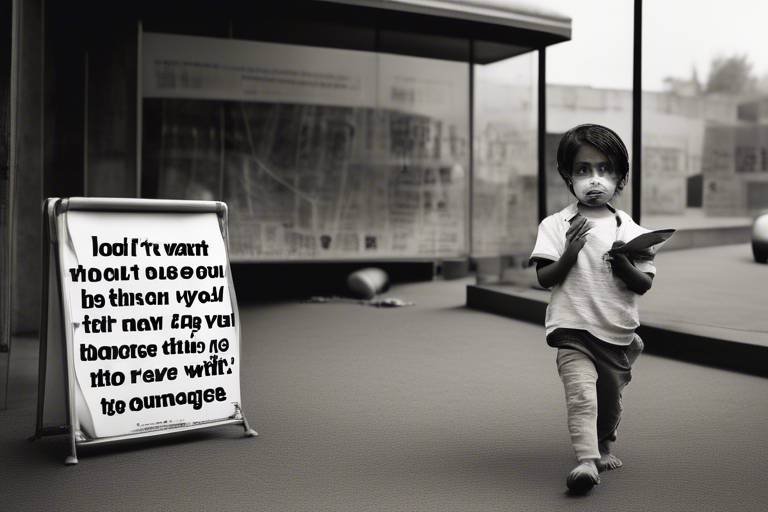Drunkenness - A Hidden Path to Wisdom?
When we think of drunkenness, the first images that often come to mind are wild parties, slurred speech, and maybe a few regrettable decisions. But what if I told you that beneath the haze of alcohol lies a complex relationship with wisdom? It's a topic that stirs debate and curiosity alike. Many cultures have long revered alcohol not just as a means of celebration but as a catalyst for deeper thought and understanding. Could it be that in moments of intoxication, we stumble upon insights that elude us when we’re sober?
Throughout history, alcohol has been woven into the fabric of social interactions and spiritual rituals. From ancient rituals to modern-day gatherings, alcohol serves as a social lubricant, easing tensions and fostering connections. But it doesn't stop there; it also acts as a gateway to introspection and creativity. Think about it: how many times have you heard stories of artists, writers, or philosophers who credit their best ideas to a few drinks? It’s almost as if alcohol has this unique ability to unlock the doors of perception, allowing us to explore realms of thought that remain hidden in our everyday lives.
However, this journey into the depths of intoxication is not without its risks. While some may find clarity in drunkenness, others may spiral into chaos. It's essential to recognize that the line between insight and folly can be incredibly thin. The allure of wisdom found in drunkenness comes with the caveat that excessive consumption can lead to dangerous consequences. So, the question remains: can we navigate this fine line effectively? Can we embrace the potential for wisdom without succumbing to the pitfalls of overindulgence?
In the following sections, we will delve deeper into these questions, exploring the cultural significance of alcohol, the psychological effects of intoxication, and the balance of moderation. We'll also take a closer look at how altered states of consciousness can foster creativity and introspection, leading to profound reflections on life. So, grab a drink, sit back, and let’s explore this fascinating relationship between drunkenness and wisdom together!
Alcohol has played a pivotal role in various cultures, serving as a social lubricant and a medium for spiritual experiences. Understanding its cultural significance can shed light on its perceived wisdom.
Exploring the psychological effects of alcohol reveals how it alters perception and cognition. This section delves into the mind's transformation under the influence, potentially leading to unexpected insights.
Intoxication often leads to altered states of consciousness that can foster creativity and introspection. This phenomenon might be seen as a pathway to deeper understanding and wisdom.
Many artists and thinkers have credited alcohol with enhancing their creative processes. This subheading examines how drunkenness can sometimes unlock innovative ideas and perspectives.
Drunkenness can provoke profound reflections on life, leading individuals to confront their thoughts and emotions. This introspective journey may yield wisdom not easily accessible in sobriety.
While drunkenness may offer insights, it also carries significant risks. This section discusses the potential dangers and negative consequences associated with excessive alcohol consumption.
Moderate alcohol consumption may provide a balanced approach to gaining insights without the pitfalls of overindulgence. This section explores how moderation can lead to a healthier relationship with alcohol.
Adopting mindful drinking practices can enhance the positive aspects of alcohol while minimizing harm. This subheading discusses strategies for achieving a balanced approach to intoxication.
Personal experiences with drunkenness can yield valuable life lessons. This section highlights anecdotes and insights gained through navigating the complexities of alcohol consumption.
- Can alcohol truly lead to wisdom? While it can provide insights, moderation is key to avoiding negative consequences.
- What are some cultural perspectives on alcohol? Different cultures view alcohol as a tool for celebration, connection, and even spiritual experiences.
- How can I drink mindfully? Set limits for yourself, choose quality over quantity, and pay attention to how alcohol affects your mood and thoughts.
- Are there risks associated with drinking for creativity? Yes, excessive drinking can lead to addiction, health issues, and impaired judgment.

The Cultural Significance of Alcohol
Alcohol has been a cornerstone of human civilization for thousands of years, transcending geographical, cultural, and social boundaries. From ancient rituals to modern celebrations, its presence is deeply woven into the fabric of societies around the world. In many cultures, alcohol serves not just as a beverage but as a social lubricant, a means of fostering connections and building relationships. Imagine a traditional wedding feast where clinking glasses of wine symbolize the union of two families, or a festive gathering where shared toasts create bonds of friendship. These moments highlight how alcohol can enhance social interactions and create lasting memories.
Moreover, alcohol often plays a significant role in spiritual and religious practices. For instance, in many cultures, wine is used in sacred rituals, signifying the blood of Christ in Christianity or serving as an offering to deities in various pagan traditions. This duality of alcohol as both a celebratory and a sacred element reflects its profound cultural significance. In some indigenous cultures, fermented beverages are integral to ceremonies that connect participants with their ancestors and the spiritual world. Such practices emphasize the idea that alcohol can be a vessel for deeper understanding and communion with the divine.
Understanding the cultural significance of alcohol is essential to grasp its perceived wisdom. It’s not merely about getting drunk; it’s about the stories, traditions, and meanings that accompany its consumption. For example, in Japan, the ritual of kanpai (meaning "cheers") is more than just a toast; it symbolizes respect and camaraderie among participants. Similarly, in many Mediterranean cultures, sharing a glass of wine is a sign of hospitality and friendship, embodying the notion that breaking bread—and sharing a drink—brings people closer together.
However, it’s crucial to recognize that the cultural significance of alcohol is not universally positive. In various societies, excessive drinking can lead to stigmatization and social issues, prompting discussions around responsible consumption. This duality often sparks debates about the role of alcohol in society: Is it a gateway to wisdom and connection, or a potential path to chaos and destruction? The answer lies in the balance of its use and the cultural narratives that shape our perceptions of it.
To further illustrate the cultural significance of alcohol, here’s a brief overview of its roles across different cultures:
| Culture | Significance of Alcohol |
|---|---|
| Western Cultures | Celebration, social bonding, and religious rituals. |
| Eastern Cultures | Spiritual offerings, traditional ceremonies, and social harmony. |
| Indigenous Cultures | Rituals connecting with ancestors and spiritual realms. |
| Latin American Cultures | Festivals, family gatherings, and cultural identity. |
In conclusion, the cultural significance of alcohol is multifaceted, serving as a bridge between individuals and their communities, as well as a medium for spiritual expression. By examining these cultural narratives, we can better understand how alcohol is perceived as a source of wisdom in various contexts. It invites us to reflect on our own experiences and the roles that alcohol plays in our lives, both positively and negatively.

The Psychology Behind Intoxication
When we think about drunkenness, our minds often drift to wild parties, laughter, and maybe a few regrettable decisions. But underneath this chaotic surface lies a complex psychological landscape that transforms our perception and cognition. Alcohol acts as a potent social catalyst, altering not just our behavior but also the very fabric of our thoughts. Have you ever found yourself spilling your deepest secrets after just a few drinks? That's not just the booze talking; it's the way alcohol interacts with our brain's chemistry!
To understand this transformation, we need to dive into how alcohol affects our brain. Initially, it serves as a depressant, slowing down the central nervous system. This can lead to a sense of relaxation and euphoria, which is why many people reach for a drink after a long day. However, as the intoxication progresses, it can create a sense of disinhibition. This means that our usual filters and self-control begin to fade away, leading us to express thoughts and feelings we might otherwise keep bottled up. It's almost like alcohol acts as a key, unlocking the door to our subconscious. But what does this mean for wisdom?
One of the most intriguing aspects of intoxication is its ability to induce altered states of consciousness. When our minds are unshackled from the constraints of sobriety, we may find ourselves exploring new ideas or perspectives that we wouldn't consider when fully alert. Think of it as a fog lifting, revealing paths that were previously obscured. This can lead to moments of profound insight, as the mind dances between clarity and confusion. Some people describe these experiences as epiphanies, where the haze of alcohol allows them to confront truths about themselves or the world around them.
Interestingly, many famous artists and thinkers have credited their creative breakthroughs to moments of drunkenness. The likes of Ernest Hemingway and Vincent van Gogh often turned to alcohol for inspiration, believing it to be a muse that unlocked their artistic genius. While this connection between creativity and drunkenness is compelling, it raises the question: is the creativity genuine, or merely a byproduct of altered judgment? In many cases, the answer may lie in the balance between intoxication and clarity, with the most profound insights emerging from moments of reflection rather than reckless abandon.
But let's not romanticize drunkenness too much. The psychological effects of alcohol can lead to a double-edged sword. While some may find wisdom in their drunken musings, others may spiral into confusion or despair. The very state of inebriation that can foster creativity can also cloud judgment, leading to poor decisions and regrettable actions. It's essential to recognize that while alcohol can serve as a temporary escape, it doesn't provide a true path to wisdom. Instead, it can illuminate certain truths and perspectives, but only if navigated carefully.
In conclusion, the psychology behind intoxication reveals a fascinating interplay between our minds and alcohol. It can open doors to creativity and introspection, but it also carries risks that shouldn't be ignored. The journey through drunkenness can lead to moments of clarity and insight, but it requires a delicate balance. So, the next time you raise a glass, consider what lies beneath the surface; you might just stumble upon a hidden truth about yourself or the world around you.
- Can alcohol truly enhance creativity? While some individuals report increased creativity while intoxicated, it is essential to approach this with caution, as the quality of creative output may vary greatly.
- What are the risks associated with intoxication? Excessive drinking can lead to impaired judgment, addiction, and a host of health issues, overshadowing any potential insights gained.
- Is there a safe way to explore the effects of alcohol on creativity? Moderation is key. Engaging in mindful drinking can help individuals enjoy the social aspects of alcohol without succumbing to its pitfalls.

Altered States of Consciousness
When we dive into the realm of drunkenness, we often find ourselves in a fascinating landscape of altered states of consciousness. Imagine your mind as a vast ocean, and alcohol as the waves that can either gently rock your boat or toss it into a storm. This transformation can lead to a whirlwind of creativity, introspection, and sometimes, profound insights. But how does this all work? Well, alcohol acts as a depressant, affecting the central nervous system and altering our perceptions, emotions, and cognitive functions.
As the alcohol flows, the brain undergoes a series of changes. The prefrontal cortex, which governs decision-making and self-control, becomes less active. This can lead to a sense of liberation, where inhibitions fade away, and new ideas surface. It's almost as if the mind is given permission to roam freely, shedding the constraints of everyday life. In this state, you might find yourself pondering deep questions or experiencing a surge of creativity that feels almost otherworldly.
Interestingly, many artists and thinkers throughout history have embraced this altered state as a catalyst for their work. For instance, the famous poet Charles Baudelaire once said, "Wine is a poet's milk." This highlights the belief that intoxication can unlock creative potential, allowing individuals to express thoughts and emotions that might remain buried during sober moments. In fact, studies suggest that some people experience enhanced creativity when under the influence, leading to a unique blend of inspiration and introspection.
However, it’s essential to tread carefully in this intriguing territory. While these altered states can provide a glimpse into deeper understanding, they can also lead to confusion and chaos. The line between enlightenment and intoxication can blur, leaving individuals grappling with the aftermath of their choices. It’s a delicate balance, much like walking a tightrope—one misstep can send you tumbling into a world of regret.
In summary, altered states of consciousness induced by drunkenness can be a double-edged sword. They offer a pathway to creativity and self-discovery but come with inherent risks. By understanding these dynamics, we can better navigate the complexities of alcohol consumption and its impact on our minds.
- Can alcohol really enhance creativity?
While some individuals report increased creativity when drinking, results can vary widely. It often depends on the person and the amount consumed. - Are there risks associated with intoxication?
Yes, excessive drinking can lead to poor decision-making, health issues, and addiction, overshadowing any potential benefits. - How can one enjoy alcohol responsibly?
Practicing moderation and being mindful of your limits can help maintain a healthy relationship with alcohol.

Creativity and Drunkenness
When we think about creativity, the image of an artist, a writer, or a musician often comes to mind. But what if I told you that drunkenness has been a muse for many of these creative souls? Throughout history, there are countless stories of individuals who have found their spark in a bottle. It's almost as if alcohol acts as a key that unlocks the door to the subconscious, allowing thoughts and ideas to flow more freely than they might in a sober state. Have you ever noticed how a casual drink can sometimes lead to those brilliant "Aha!" moments?
For many, the relationship between creativity and alcohol is not just anecdotal; it’s backed by cultural narratives and personal experiences. Think about famous figures like Ernest Hemingway or Vincent van Gogh. Their works are often infused with a sense of raw emotion and intensity that some attribute to their drinking habits. But why does this happen? What is it about alcohol that seems to enhance creativity?
One theory is that alcohol reduces inhibitions. When we’re sober, we often hold back our thoughts, worried about how they’ll be received. But after a drink or two, those barriers can dissolve, paving the way for unfiltered expression. This state of mind can lead to innovative ideas that might have otherwise remained locked away, hidden beneath layers of self-doubt. It’s like letting your inner child out to play, free from the constraints of adult worries.
However, it’s essential to recognize that this isn’t a universal truth. Not everyone finds their creative flow through alcohol, and for some, it can lead to a creative block instead. The key lies in moderation. A little bit of intoxication might just be the spark you need, but too much can cloud your judgment and stifle your creativity. So, how can one strike this delicate balance?
Here are a few tips to harness the creative potential of drunkenness without falling into its pitfalls:
- Set a Limit: Decide in advance how much you’ll drink. This helps keep your creativity flowing without spiraling into chaos.
- Choose the Right Environment: Surround yourself with supportive friends or fellow creatives who inspire you.
- Embrace the Flow: Allow your thoughts to wander, but keep a notebook handy to jot down those brilliant ideas before they slip away.
In conclusion, while drunkenness can sometimes serve as a catalyst for creativity, it's crucial to approach it with a sense of caution and respect. After all, the goal is to enhance your creative process, not to hinder it. So, the next time you find yourself with a drink in hand, consider the potential for inspiration that lies within. Who knows? That next great idea might just be a sip away!
- Can alcohol really enhance creativity? - Many individuals report that moderate alcohol consumption can help reduce inhibitions, fostering a more open mindset for creative thinking.
- Is there a risk of dependency? - Yes, excessive drinking can lead to dependency and other negative health effects. It's important to drink responsibly.
- Are there alternatives to alcohol for enhancing creativity? - Absolutely! Activities like meditation, exercise, or even a change of scenery can also stimulate creativity.

Introspection and Reflection
When we think about drunkenness, it’s easy to conjure up images of wild parties and carefree abandon. However, there’s a deeper, more profound side to intoxication that often gets overlooked: the power of introspection and reflection. Have you ever found yourself pondering the mysteries of life after a few drinks? It’s as if the veil of everyday worries lifts, allowing a clearer view into our own minds. This phenomenon occurs because alcohol can lower our inhibitions and open the floodgates of thought, leading us to confront feelings and ideas that we might typically push aside.
Consider the way a glass of wine at dinner can transform a mundane meal into a moment of connection and deep conversation. Suddenly, we’re sharing our dreams, fears, and aspirations, diving into discussions that might feel too heavy in a sober state. This is not merely the effect of alcohol; it’s a catalyst for emotional honesty. Many people report that in these moments, they gain insights into their lives that feel both surprising and enlightening. It’s almost as if drunkenness acts as a key, unlocking doors to parts of our psyche we rarely explore.
But what exactly happens during these moments of reflection? Intoxication alters our brain chemistry, affecting neurotransmitters like dopamine and serotonin, which play crucial roles in mood and perception. This alteration can create a sense of euphoria or heightened emotion, making it easier to engage with our inner thoughts. For some, this leads to a cathartic release of pent-up emotions, while for others, it may result in a profound realization about their life path. In fact, many artists and thinkers have credited their best ideas to these moments of drunken clarity.
However, it’s important to recognize that while drunkenness can prompt introspection, it can also lead to confusion and misinterpretation of those reflections. The line between insight and irrationality can blur, making it essential to approach these moments with a degree of caution. Here are a few potential outcomes of drunken introspection:
- Clarity: Some individuals find that they can articulate their feelings more clearly after a drink or two.
- Overthinking: Conversely, others may spiral into negative thoughts, misinterpreting their feelings.
- Creativity: Many report a surge of creative ideas, which can lead to exciting new projects or artistic endeavors.
In essence, drunkenness can serve as a double-edged sword. It can unlock profound insights but also lead to confusion. The key lies in how we navigate these moments, balancing the potential for wisdom with the risks of intoxication. To truly harness the power of introspection while under the influence, one must be mindful of their limits and approach the experience with an open but discerning mind.
- Can alcohol really lead to profound insights? Yes, many people experience moments of clarity and deep reflection under the influence of alcohol, but it varies from person to person.
- Is it safe to rely on alcohol for introspection? While it can facilitate introspection, it’s essential to approach drinking responsibly to avoid negative consequences.
- What are some alternatives to alcohol for self-reflection? Meditation, journaling, and engaging in deep conversations can also promote introspection without the risks associated with alcohol.

Risks and Consequences
While the allure of drunkenness may seem appealing, especially when considering its potential for unlocking creativity and introspection, it’s crucial to recognize the significant risks and consequences that accompany excessive alcohol consumption. These risks can range from the immediate effects of intoxication to long-term health issues that can profoundly impact one’s life. For instance, alcohol can impair judgment, leading to reckless behavior that one might not engage in while sober. This can result in dangerous situations, such as driving under the influence, which can not only endanger the drinker but also innocent lives on the road.
Moreover, the psychological effects of alcohol can be misleading. Initially, it may seem like a social lubricant, helping to break down barriers and foster connections. However, as intoxication progresses, individuals may experience heightened emotions, leading to conflicts or misunderstandings. The aftermath of such incidents can leave emotional scars, affecting relationships with friends and family. It's essential to understand that what might start as a fun night out can quickly spiral into a series of regrettable decisions.
In addition to social consequences, the physical health risks associated with heavy drinking cannot be overlooked. Chronic alcohol consumption can lead to a range of serious health issues, including:
- Alcohol Dependency: Over time, individuals may develop a tolerance, requiring more alcohol to achieve the same effects, leading to a cycle of dependency.
- Liver Damage: The liver is particularly vulnerable to the effects of alcohol, with conditions such as fatty liver disease, hepatitis, and cirrhosis being common among heavy drinkers.
- Increased Cancer Risk: Studies have shown a correlation between alcohol consumption and various cancers, including breast, liver, and esophageal cancer.
Furthermore, the societal implications of drunkenness can create a ripple effect. Excessive drinking can burden healthcare systems, increase crime rates, and lead to lost productivity in the workplace. These consequences highlight the need for a balanced approach to alcohol consumption, recognizing that while there may be moments of insight and creativity, they come with a price. Understanding these risks can empower individuals to make informed choices about their drinking habits, ultimately leading to a healthier relationship with alcohol.
- What are the short-term effects of alcohol consumption? Short-term effects can include impaired judgment, decreased coordination, and emotional volatility.
- Can moderate drinking be beneficial? Yes, moderate drinking may have some benefits, such as potential cardiovascular advantages, but it’s essential to define what moderation means for each individual.
- How can I practice mindful drinking? Mindful drinking involves being aware of your drinking habits, setting limits, and choosing occasions where alcohol consumption is appropriate.
- What should I do if I feel I have a drinking problem? Seeking professional help, such as counseling or support groups, can provide valuable assistance in addressing alcohol-related issues.

Wisdom in Moderation
When it comes to alcohol, the age-old saying “everything in moderation” rings true. Moderate alcohol consumption can provide a balanced approach to enjoying its benefits while minimizing the risks associated with overindulgence. Think of it like seasoning in cooking; a pinch can enhance the flavor, but too much can ruin the dish. So, how can we navigate this delicate balance? Let's dive into the world of mindful drinking and discover how moderation can lead to a healthier relationship with alcohol.
First off, it’s essential to recognize that moderation doesn’t mean deprivation. It’s about finding a sweet spot where you can enjoy the social and psychological benefits of alcohol without spiraling into the chaos that excessive drinking often brings. Studies have shown that moderate drinkers often report feeling more relaxed and socially connected, which can lead to moments of clarity and insight. It’s almost like alcohol acts as a key that unlocks a door to a more profound understanding of ourselves and our surroundings, but only if we don’t lose the key in a drunken haze.
So, what constitutes moderate drinking? The Centers for Disease Control and Prevention (CDC) defines moderate drinking as up to one drink per day for women and up to two drinks per day for men. This guideline serves as a helpful benchmark, but it’s crucial to listen to your body and understand your limits. Everyone’s tolerance is different, and what works for one person may not work for another. Keeping track of your consumption can be beneficial, and here’s a simple table to help you understand standard drink sizes:
| Type of Drink | Standard Serving Size | Alcohol Content |
|---|---|---|
| Beer | 12 ounces | 5% alcohol |
| Wine | 5 ounces | 12% alcohol |
| Distilled Spirits | 1.5 ounces | 40% alcohol |
Incorporating mindful drinking practices can significantly enhance the positive aspects of alcohol. This means being intentional about when and why you drink. Ask yourself questions like: “Am I drinking to celebrate, to unwind, or to escape?” This level of self-awareness can prevent the slippery slope into excessive drinking. Additionally, savoring your drink can turn the act of consuming alcohol into a more reflective experience. Instead of gulping down a cocktail at a party, try sipping it slowly, enjoying the flavors and aromas. You might find that this not only enhances your appreciation of the drink but also leads to deeper conversations and connections with those around you.
Furthermore, surrounding yourself with friends who also practice moderation can create a supportive environment. You can share stories, insights, and experiences that foster personal growth and wisdom. It’s like being part of a book club where everyone reads the same book but brings their unique interpretations to the table. These interactions can lead to enlightening discussions that might not happen in a more intoxicated state.
Ultimately, the journey towards wisdom through moderation is about balance. While alcohol can indeed serve as a catalyst for creativity and introspection, it’s essential to approach it with caution. By setting personal limits, practicing mindfulness, and surrounding ourselves with supportive individuals, we can enjoy the benefits of alcohol without falling prey to its darker side. Remember, the goal is not just to drink but to drink wisely, turning each sip into a step towards greater understanding and insight.
- What is considered moderate drinking? Moderate drinking is defined as up to one drink per day for women and up to two drinks per day for men.
- Can moderate drinking lead to wisdom? Yes, moderate drinking can enhance social connections and promote introspection, leading to insights and personal growth.
- How can I practice mindful drinking? Be intentional about when and why you drink, savor your drinks, and surround yourself with supportive friends.

Mindful Drinking Practices
In a world where binge drinking can often overshadow the true essence of enjoying a drink, emerge as a refreshing approach. Imagine sipping a fine wine, allowing the flavors to dance on your palate, rather than downing a shot and moving to the next round. Mindful drinking encourages us to embrace the experience and be fully present in the moment. This practice not only enhances our appreciation for alcohol but also fosters a healthier relationship with it.
One of the cornerstones of mindful drinking is awareness. Before you even take that first sip, take a moment to assess your intentions. Are you drinking to celebrate, to unwind, or perhaps to socialize? Understanding your motivations can significantly influence your drinking habits. For instance, if you’re at a party, ask yourself, “Am I genuinely enjoying this drink, or am I just following the crowd?” This simple reflection can make a world of difference.
Another essential aspect of mindful drinking is moderation. It’s easy to get caught up in the excitement of a night out, but pacing yourself can lead to a more enjoyable experience. Consider adopting the one-to-one rule: for every alcoholic beverage you consume, drink a glass of water. Not only does this help to keep you hydrated, but it also allows you to savor your drinks without overindulging. Think of it as a dance; if you rush through the steps, you’ll miss the beauty of the performance.
Additionally, setting boundaries can greatly enhance your mindful drinking experience. Decide in advance how many drinks you’ll have and stick to that limit. This pre-commitment acts as a safety net, preventing you from losing track of your consumption amidst the festivities. You might even want to jot down your goals in a journal or on your phone, serving as a reminder of your intentions throughout the night.
Lastly, being present during your drinking experience is crucial. This means truly engaging with the flavors, aromas, and textures of what you’re consuming. Try to identify the ingredients in your cocktail or the notes in your wine. This sensory engagement not only heightens your enjoyment but also keeps you grounded in the moment, reducing the likelihood of overindulgence. Remember, it’s not just about getting drunk; it’s about savoring the journey.
To summarize, practicing mindful drinking can transform your relationship with alcohol. By cultivating awareness, embracing moderation, setting boundaries, and being present, you can enjoy the benefits of alcohol without the pitfalls of excess. It’s all about finding that sweet spot where you can indulge responsibly and, perhaps, even gain a little wisdom along the way.
- What is mindful drinking? Mindful drinking is the practice of being aware of your intentions and actions while consuming alcohol, focusing on moderation and enjoyment rather than excess.
- How can I practice mindful drinking? You can practice mindful drinking by setting intentions, pacing yourself, staying hydrated, and engaging with the flavors and experiences of what you're drinking.
- Is it possible to enjoy alcohol without getting drunk? Absolutely! By practicing moderation and being present, you can enjoy the taste and experience of alcohol without overindulging.

Lessons Learned from Experience
When it comes to drunkenness, the lessons we learn from our experiences can be as varied as the flavors of a fine wine. Each encounter with alcohol may leave us with unique insights, often shaped by the circumstances surrounding our indulgence. For many, these experiences act as a rite of passage, a journey filled with both laughter and regret. Have you ever woken up after a night of revelry, only to find yourself pondering the choices you made? That moment of reflection can be a powerful teacher, revealing truths about ourselves that we might not confront in our sober moments.
One of the most profound lessons learned from drunkenness is the importance of self-awareness. As the alcohol flows, inhibitions may fade, and we may find ourselves sharing thoughts and feelings that we typically keep locked away. This can lead to unexpected revelations about our desires, fears, and relationships. For instance, a night out with friends might spark a conversation about aspirations, pushing us to reconsider our career paths or personal goals. In this way, drunkenness can serve as a catalyst for change, prompting us to take a closer look at our lives.
However, it’s essential to recognize that these insights often come at a cost. The line between enlightening experiences and regrettable decisions can be razor-thin. Many have experienced the fallout from a drunken night—strained friendships, embarrassing moments, or even dangerous situations. Learning to navigate this fine line is crucial. Reflecting on past experiences can help us develop a healthier relationship with alcohol. It's about understanding when to indulge and when to hold back, a balance that can lead to a more fulfilling life.
Moreover, sharing stories of drunken escapades can foster deeper connections among friends. When we recount our misadventures, we often find common ground with others, creating bonds that might not have formed in a sober setting. These shared experiences can lead to laughter, empathy, and a sense of community. It’s fascinating how a simple drink can transform into a shared memory, a story that gets retold time and again, evolving with each telling.
To illustrate the dual nature of drunken experiences, consider the following table that outlines some common lessons learned:
| Lesson | Description |
|---|---|
| Self-Awareness | Alcohol can lower inhibitions, leading to important personal insights. |
| Consequences | Excessive drinking can result in regrettable decisions and strained relationships. |
| Connection | Sharing drunken stories can strengthen bonds and foster community. |
In conclusion, while drunkenness may offer moments of clarity and insight, it is vital to approach it with caution. The lessons learned from experience can guide us towards a more mindful relationship with alcohol. By embracing the good, the bad, and the ugly of our encounters with drunkenness, we can cultivate a deeper understanding of ourselves and our place in the world. So, the next time you find yourself at a bar, remember: every drink has the potential to teach you something valuable, as long as you're willing to listen.
- Can drunkenness truly lead to wisdom? While some may find insights during intoxication, it's essential to approach this with caution, as the clarity gained can be fleeting.
- What are the risks associated with drinking alcohol? Excessive drinking can lead to health issues, accidents, and strained relationships.
- How can I drink mindfully? Focus on moderation, stay aware of your limits, and choose environments that promote safe drinking.
- Are there benefits to moderate drinking? Yes, moderate drinking can enhance social interactions and may provide a sense of relaxation.
Frequently Asked Questions
- What is the cultural significance of alcohol in different societies?
Alcohol has been a part of human culture for centuries, serving various purposes from social bonding to spiritual rituals. In many cultures, it acts as a social lubricant, facilitating connections and conversations. In others, it is intertwined with religious or spiritual practices, helping individuals to experience transcendence or enlightenment.
- How does alcohol affect our psychology and cognition?
Alcohol alters our perception and cognition by affecting neurotransmitters in the brain. This can lead to changes in mood, behavior, and thought processes. While it may impair judgment, it can also foster creativity and introspection, allowing individuals to explore ideas and emotions they might otherwise suppress.
- Can drunkenness lead to creativity?
Many artists and thinkers have claimed that alcohol enhances their creative processes. The altered state of consciousness induced by intoxication can sometimes unlock innovative ideas and perspectives, providing a unique lens through which to view the world.
- What are the risks associated with excessive alcohol consumption?
While some may find insights through intoxication, excessive drinking can lead to serious health risks, including addiction, liver disease, and impaired social functioning. It's essential to balance the potential benefits with the significant dangers that come with overindulgence.
- How can moderation in drinking lead to wisdom?
Moderate alcohol consumption may allow individuals to enjoy the benefits of intoxication—like creativity and introspection—without the negative consequences associated with heavy drinking. Finding this balance can foster a healthier relationship with alcohol and lead to meaningful insights.
- What are mindful drinking practices?
Mindful drinking involves being aware of your alcohol consumption and its effects on your body and mind. This can include setting limits, choosing quality over quantity, and paying attention to how alcohol affects your mood and behavior, ultimately enhancing the positive aspects of drinking.
- What life lessons can be learned from personal experiences with drunkenness?
Many individuals find that their experiences with alcohol—both good and bad—can provide valuable life lessons. These lessons might include understanding personal limits, recognizing emotional triggers, and learning the importance of moderation in all aspects of life.


